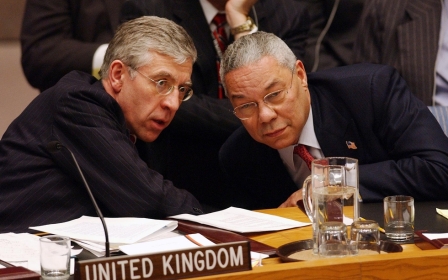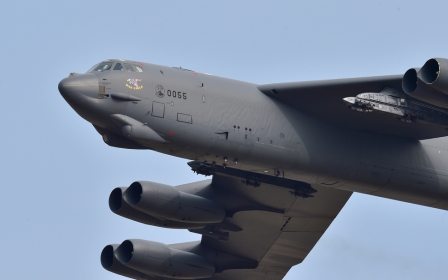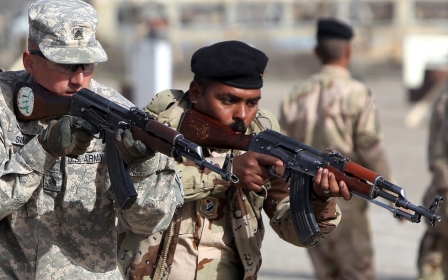Iraqi security chief blames Gulf states for cultivating rise of IS

Iraq's national security chief has blamed neighbouring countries for cultivating the rise of the Islamic State group as a way of bolstering their own failing governments.
Speaking at the Royal United Services Institute in London, Faleh al-Fayyad, Iraq's national security adviser, said that the ideologies that underpinned al-Qaeda and the Islamic State group had received support in neighbouring Arab states, and warned that "some regimes have been devoting resources to defending those ideologies".
“Some rich Gulf countries [have been] using the measures of their wealth to giving legitimacy to these groups," he said.
He added that the same countries were "stoking sectarianism" to rally support as they faced economic crises due to falling oil prices.
“We know about the real perpetrators” responsible for funding and training IS, he added.
His comments come as the final push to take back Mosul from IS gathers pace.
The offensive has been hailed as potentially signalling the final defeat for IS in Iraq, but the circumstances around the final campaign have been beset with controversy.
Also speaking at the institute on Wednesday, the Iraqi Foreign Minister Ibrahim al-Jafaari attempted to allay fears that the push on Mosul would alienate the local populace or that the forces involved would pursue their own agendas.
“I do not deny that the actions by one person here or there or a small group of people here or there," he said.
However he said that "the Sunni and Shia community are well and have the trust of each other”.
He said that the "military operation is based on Iraqi forces" and not driven by a religious or separatist agenda.
“I lived many years in... Mosul and I realised from being close how the Mosul community deals with other nationalities and other entities," he said.
IS has carried out numerous attacks within Iraq since capturing the city in June 2014. A bomb blast in the Baghdad district of Karrada in early July killed close to 300 people, in one of the deadliest single attacks to rock Iraq.
Although some feared the group would eventually push towards Baghdad, a series of military defeats have left IS once again with Mosul as its only stronghold.
The Iraqi army and allied militias have since taken back territory, bolstered by a coalition of foreign powers, including the US.
But the drive has been dogged by allegations of sectarianism and a number of Sunni-majority Gulf countries have frequently been accused of funding IS and al-Qaeda in Syria and Iraq - accusations that frequently been denied by the governments of those states.
A British parliamentary report released in July said that there was "historic evidence" that such groups had received funding from Gulf states and that "family donations" had been made from the countries through the unregulated Alternative Value Transfer Systems - a method of transferring money without disclosing the identity of the payee.
However, the report also said that the evidence from the British defence ministry suggested that private donations to IS were “minimal” compared to its other revenue streams, such as oil and taxation.
Fayyad argued that the global threat of IS meant that the international community was starting to take the ideology of "terrorism" seriously.
“The scene is clearer now, not because the world didn’t know about it before, but because the danger is threatening everybody," he explained.
“There is no area which is protected from the invasion of IS.”
Some have expressed concerns over allegations of sectarianism on the part of the Shia-dominated Popular Mobilisation Units (PMUs), who have in past been accused of carrying out atrocities in reprisals against Sunnis in former IS-dominated areas.
Other have warned that Peshmerga fighters from the Iraqi Kurdistan region could have their own designs on areas they deem to belong to Kurds.
Mosul's population prior to the IS conquest was highly diverse, comprised of mainly Sunni Arabs, Turkmen, Christians and Kurds. However, thousands fled following the city's fall to the militant group, with much of its populace now housed in refugee camps in the south of the country.
New MEE newsletter: Jerusalem Dispatch
Sign up to get the latest insights and analysis on Israel-Palestine, alongside Turkey Unpacked and other MEE newsletters
Middle East Eye delivers independent and unrivalled coverage and analysis of the Middle East, North Africa and beyond. To learn more about republishing this content and the associated fees, please fill out this form. More about MEE can be found here.




